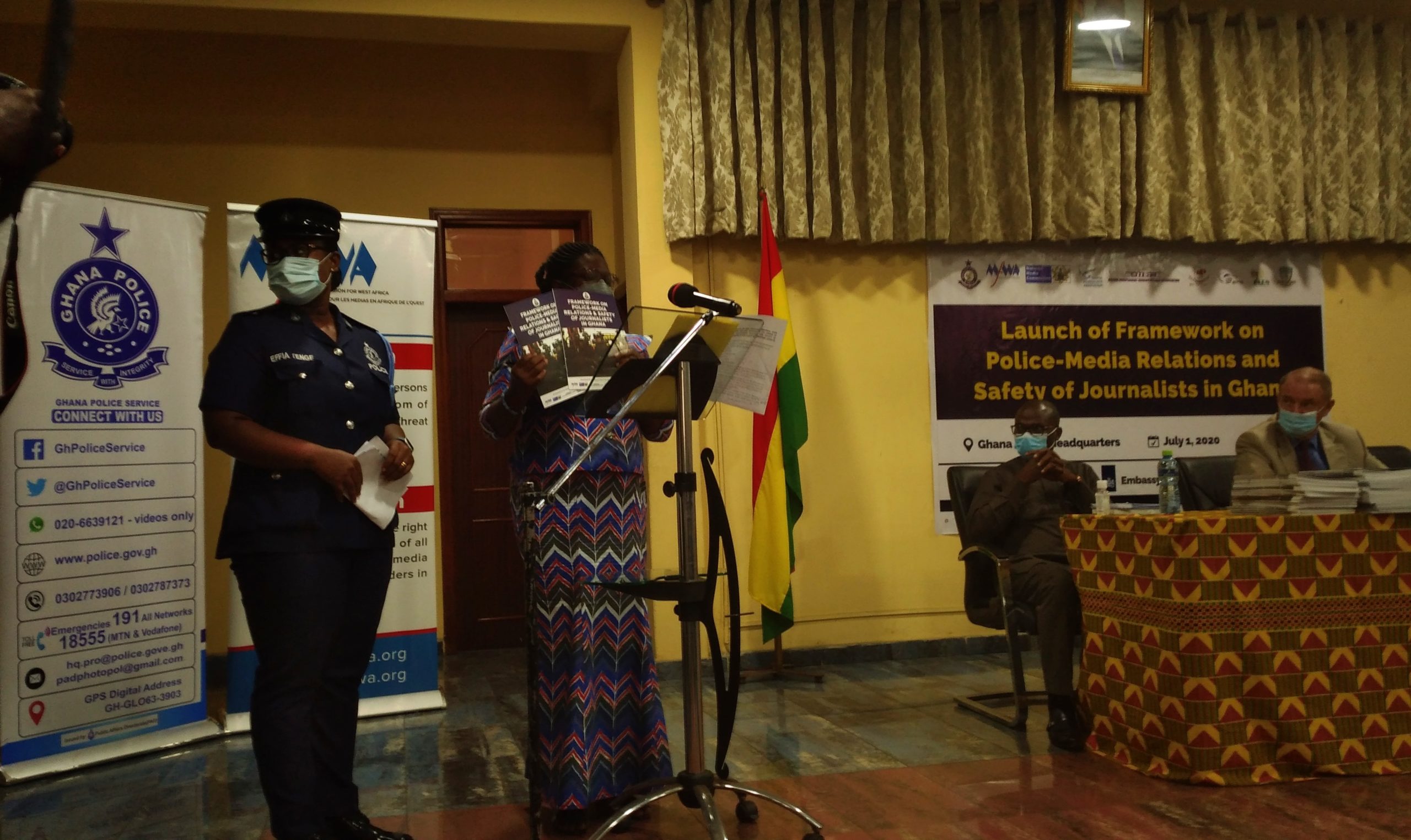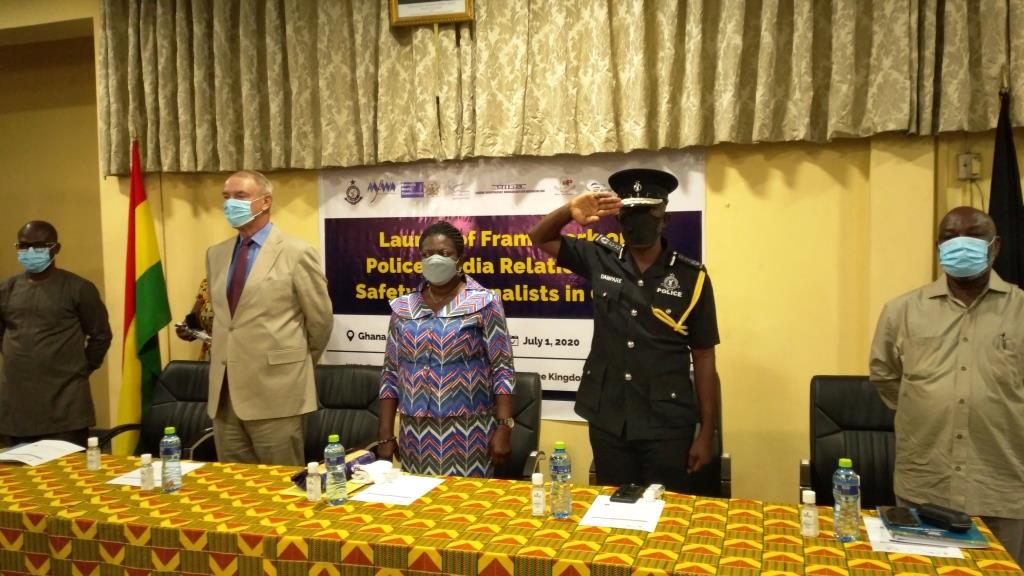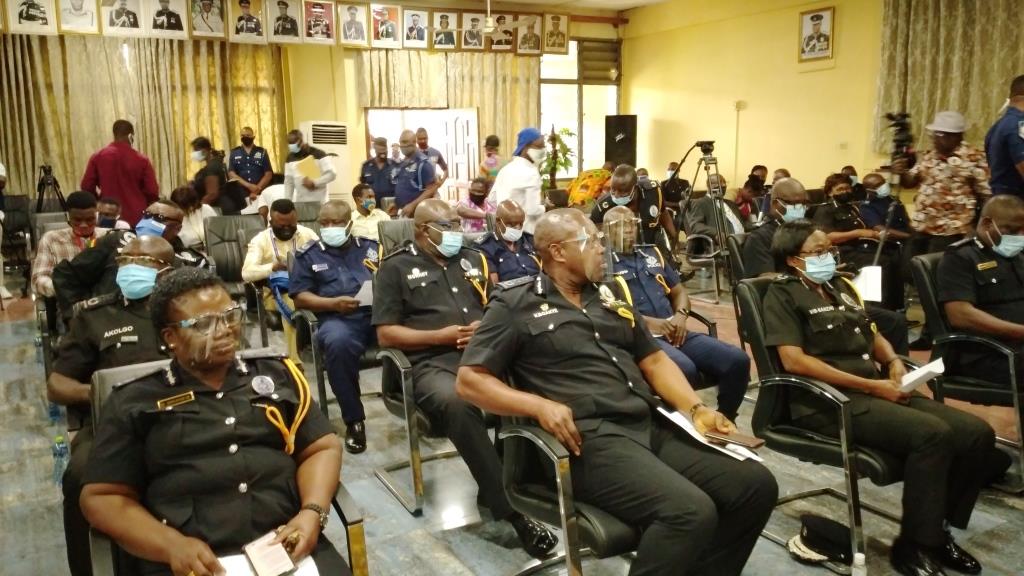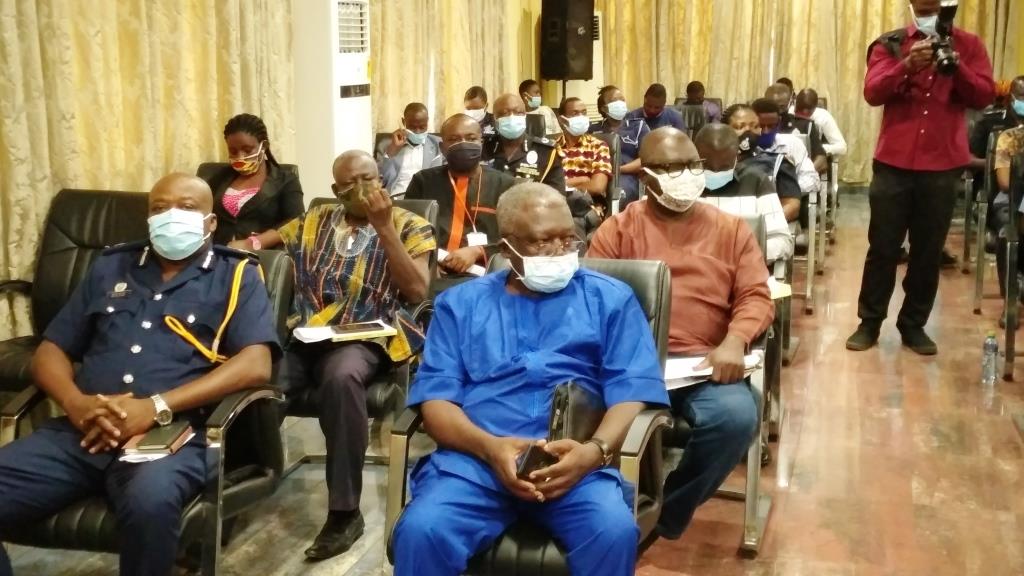Police cannot censor reportage – Prof Karikari
It is unlawful for police to confiscate the equipment of media persons executing their duties, Communications Professor, Kwame Karikari, has said.
Professor Karikari explained that the Constitution of Ghana abhors censorship, and the police must be guided accordingly.
Speaking at the launch of a framework on police-media relations and the safety of journalists, Professor Karikari indicated that there had been too many occasions of police obstructing journalists.

“Under this framework, we are asking the police to desist from doing that,” he stated, as he highlighted portions of the framework at an event on Wednesday, July 1, at the Police Headquarters in Accra.
He advised the law enforcement agencies to recognise the Constitution’s declarations in Article 2 and Article 162, which states that “there shall be no censorship in Ghana”.
“It is an act of censorship for any police officer or security operative to seize any sound recording, photographic or filming equipment, or to obstruct, delete, erase or destroy recorded, filmed or photographed material by a journalist or even by an ordinary citizen,” he stressed. “Only the court has the power to decide and judge whether a material recorded amounts to an infringement of any sort”.

The media consultant was quick to add that certain exceptional and critical cases, and only in the public interest that the police may retrain journalists from photographing, sound recording or filming situations.
These may include matters related to terrorism, organised crime, accidents and special scenes where police need to preserve secrecy or identities of subjects.
In such cases, the police is required to inform the media adequately of the reason for their restraining actions.
Framework on Police-Media Relations
The policy document was developed to guide the operations of the media and police to ensure harmonious discharge of duties by the two entities.
Instances of police brutalities and failure to recognise the role of law enforcement agencies prompted the development of the document to guide the media and the police.
All media houses have also been advised to take prompt action to respond to police complaints pertaining to content on publications related to the police.
In addition to the framework, a National Police-Media Committee is expected to be formed to address concerns by both parties.

Launching the framework, the Chief Director of the Ministry of the Interior, Mrs Adelaide Anno-Kumi, expressed confidence that the guide would strengthen the relationship between the media and the police and also provide modalities for addressing violations against journalists.
She also advised the two entities to eschew misconceptions, misinterpretations and mistrust against each other.
In a speech read on behalf of the Inspector-General of Police (IGP) James Oppong-Boanuh, Director-General of Administration Dr George Akuffo Dampare said there have been great collaborations between the media and police over the years.
He admitted avoidable apprehensions between the two, hence the need for a common ground to find pragmatic ways of managing differences.

To enhance collaboration, he said the police identified and trained 30 journalists from selected media houses on police structure and operations for better reporting on crime even before the framework.
He said the police were committed to implementing the new guidelines for good governance.
For his part, the Ambassador of the Kingdom of the Netherlands to the Republic of Ghana, Ronald Strikker, highlighted the need for a free press crucial for democratic societies to ensure good governance.
He said that was the reason for the Netherland’s support towards the introduction of the framework.
“I am proud to work here in a country where such freedom of expression and a free media exists,” he stressed
He noted that journalists are the guardians of democracy, hence the need to ensure their independence.
At the same time, he highlighted the need for police to maintain law, public order and the protection of the public, including journalists.
He entreated the media and the police to understand each other, to ensure the protection of democracy and the rule of law, especially at a time when Ghana heads to the polls.
He thanked all the collaborating partners for their work aimed at a “great police-media relationship and safety of journalists in Ghana”.
Executive Director of the MFWA, Sulemana Braimah, noted that the launch had been timely as the country makes preparations for elections in less than six months.
The document was produced by stakeholders consisting of the Ghana Police Service (GPS), the Media Foundation for West Africa (MFWA), the National Media Commission (NMC), the Ghana Independent Broadcasters Association (GIBA), the Ghana Journalist Association (GJA), the Ghana Community Radio Network (GCRN), The Editors Forum-Ghana (EFG), the Private Newspaper Publishers Association of Ghana (PRINPAG).
It was funded by the government of the Netherlands.
Other international organisations such as OSIWA and the International Programme for the Development of Communication provided support for drafting the framework.
The programme was attended by members of the Police Management Board (POMAB) and other stakeholders who played various roles to ensure the completion of the framework.



